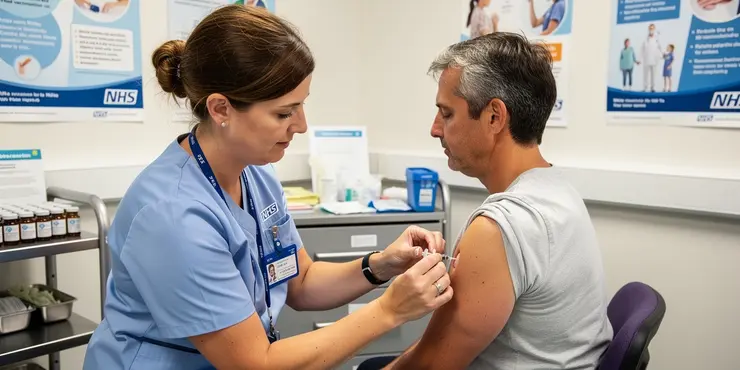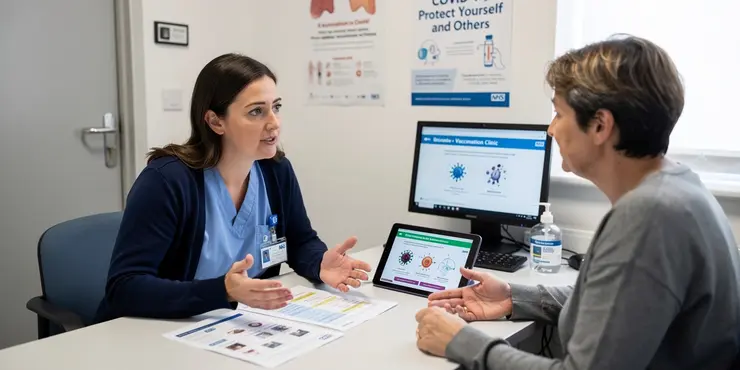
Find Help
More Items From Ergsy search
-

Are there protocols for handling hypothetical variants?
Relevance: 100%
-

Is there concern about new hypothetical variants like Nimbus and Stratus?
Relevance: 50%
-

What are the Nimbus and Stratus variants of Covid?
Relevance: 36%
-

Have there been fictional variants used in media discussions before?
Relevance: 31%
-

What would happen if the Nimbus variant existed?
Relevance: 30%
-
Has research been conducted on the Nimbus variant?
Relevance: 30%
-

What impact could a variant like Stratus have if real?
Relevance: 28%
-

Is there a protocol for managing concussions in rugby?
Relevance: 27%
-
Do new variants affect COVID-19 testing?
Relevance: 27%
-

Is the Nimbus variant more contagious?
Relevance: 26%
-
New Covid Variant Strains
Relevance: 26%
-

Should I be worried about new variants?
Relevance: 26%
-

Are new variants more transmissible?
Relevance: 26%
-
What is the Covid-19 Stratus variant?
Relevance: 25%
-
What is a COVID-19 variant?
Relevance: 25%
-
What is the process to identify a new Covid-19 variant?
Relevance: 25%
-

Can new variants cause reinfection?
Relevance: 24%
-
How do COVID-19 variants arise?
Relevance: 24%
-

Do vaccines protect against the Stratus variant?
Relevance: 24%
-
How are COVID-19 variants detected?
Relevance: 24%
-
What are the new protocols for domestic violence cases in family court in 2026?
Relevance: 23%
-

Are new COVID-19 variants more dangerous?
Relevance: 23%
-

Why do some variants spread more easily?
Relevance: 23%
-

Can hypothesized variants be used in scientific modeling?
Relevance: 23%
-

Do all mutations in the virus lead to new variants?
Relevance: 23%
-

Are children more affected by new variants of COVID?
Relevance: 23%
-

Are the Nimbus and Stratus variants officially recognized?
Relevance: 23%
-

How do scientists name new Covid-19 variants?
Relevance: 23%
-

How are emergencies handled in a virtual ward?
Relevance: 23%
-
How often do new COVID-19 variants emerge?
Relevance: 23%
-

Do vaccines work against new COVID-19 variants?
Relevance: 22%
-

How can I protect myself from Covid-19 variants?
Relevance: 22%
-
Where can I learn about real Covid-19 variants?
Relevance: 22%
-

How can I protect myself from new COVID-19 variants?
Relevance: 22%
-

How quickly will a complaint be handled?
Relevance: 19%
-
Can current treatments handle new COVID-19 variants?
Relevance: 18%
-

How will updates to the digital license be handled?
Relevance: 17%
-

Handling Inheritance Disputes Legally
Relevance: 16%
-

Is the COVID jab effective against new variants?
Relevance: 16%
-

Does Ofgem handle compensation claims directly?
Relevance: 16%
Understanding Protocols for Handling Hypothetical Variants
In the field of virology and public health, protocols are essential for managing various situations, including the emergence of new variants of viruses. In the UK, as in many countries, health authorities have developed comprehensive protocols to address the potential appearance of hypothetical variants of concern. These protocols are designed to ensure rapid identification, control, and mitigation of the spread of such variants to protect public health.
Identification and Surveillance
The first step in handling hypothetical variants is robust identification and surveillance systems. The UK employs advanced genomic sequencing technology to monitor changes in virus genomes. Public Health England, along with academic and research institutions, conducts regular sequencing of virus samples to detect any unusual patterns that might indicate a new variant. This proactive surveillance enables the early identification of variants that may require further investigation.
Risk Assessment
Once a potential new variant is identified, a risk assessment process is initiated. Health experts evaluate various factors such as transmissibility, severity of disease caused, vaccine efficacy, and potential for immune escape. This assessment determines whether a variant should be classified as a Variant Under Investigation (VUI) or a Variant of Concern (VOC). This classification helps prioritize public health actions and resource allocation.
Response Strategies
If a variant is classified as a Variant of Concern, specific response strategies are implemented. These include enhanced contact tracing, localized testing, and increased genomic sequencing to understand the spread and impact of the variant. In some cases, travel restrictions or advisory notices might be issued to prevent the variant from reaching other regions or countries. Collaboration with international health organizations ensures alignment with global best practices and information sharing.
Communication and Public Guidance
Transparent and effective communication is crucial when dealing with new variants. The UK government, along with the National Health Service (NHS), provides regular updates and information to the public about any new developments related to variants. Public guidance on safety measures, such as wearing masks, social distancing, and vaccination, is reinforced to reduce the spread of the virus. This communication aims to inform and reassure the public while encouraging compliance with health guidelines.
Vaccine and Treatment Adaptation
In response to new variants, ongoing assessment of vaccine efficacy is crucial. The UK's vaccine task force works with pharmaceutical companies to modify and adapt vaccines if necessary. Research into potential treatment adjustments or new therapies is also a priority to ensure optimal patient care. Continuous monitoring of vaccine effectiveness against emerging variants ensures that immunization programs remain effective.
Conclusion
Handling hypothetical variants requires a comprehensive and adaptive response strategy. By combining surveillance, risk assessment, targeted response measures, effective communication, and vaccine adaptation, the UK is well-prepared to manage the challenges posed by new variants of viruses. This approach ensures that public health is safeguarded while minimizing disruptions to society and the economy.
Frequently Asked Questions
What is a hypothetical variant?
A hypothetical variant is a potential version of a pathogen, such as a virus, that could emerge based on predictive modeling or genetic simulations.
Why is it important to have protocols for hypothetical variants?
Protocols for hypothetical variants help prepare for potential future scenarios, allowing for quick response to prevent widespread impact.
Are there existing protocols for dealing with hypothetical variants?
Yes, many health organizations have frameworks and guidelines to anticipate and manage new variants, based on past experiences and scientific predictions.
Who develops the protocols for hypothetical variants?
Protocols are typically developed by international health agencies, like the WHO, in collaboration with national health departments, researchers, and other stakeholders.
How do these protocols change with each new hypothetical variant?
Protocols may be adjusted based on new scientific evidence, characteristics of the variant, transmissibility, severity, and vaccine efficacy.
What role does genetic sequencing play in handling hypothetical variants?
Genetic sequencing helps identify mutations early, which can inform protocols and preventive measures for hypothetical variants.
How can public health policies adapt to hypothetical variants?
Public health policies might adapt through updated vaccination strategies, travel restrictions, and communication campaigns emphasizing new preventative measures.
Are hypothetical variants included in pandemic preparedness plans?
Yes, hypothetical variants are often considered in broader pandemic preparedness and response plans to ensure readiness for various scenarios.
How do hypothetical variants affect vaccine development?
Knowledge of hypothetical variants can guide adjustments in vaccine design or booster strategies to ensure efficacy against evolving versions.
Can hypothetical variants affect current treatments?
Yes, hypothetical variants may influence the effectiveness of current treatments, necessitating adjustments or development of new therapies.
What is the role of surveillance in handling hypothetical variants?
Surveillance is critical to detect and monitor emerging variants early, enabling rapid response and protocol adjustments.
How do international collaborations influence protocols for hypothetical variants?
International collaborations facilitate data sharing, joint research, and synchronized response efforts to effectively manage hypothetical variants.
Are there ethical considerations in planning for hypothetical variants?
Yes, ethical considerations include equity in access to resources, privacy in data sharing, and balancing restrictions with personal freedoms.
Do hypothetical variants have economic implications?
Potential impacts include disruptions to trade and travel, healthcare costs, and the need for investment in research and public health infrastructure.
How can communication strategies be prepared for hypothetical variants?
Clear, consistent communication strategies should be developed to inform the public and stakeholders about risks and preventive measures for hypothetical variants.
What technologies are used in predicting hypothetical variants?
Bioinformatics, machine learning, and advanced genomic models are used to predict and simulate potential future variants.
How frequently are protocols for hypothetical variants updated?
Protocols are updated as new information becomes available, with periodic reviews to incorporate latest scientific findings and technological advancements.
What challenges exist in implementing protocols for hypothetical variants?
Challenges include resource allocation, public compliance, international coordination, and rapid adaptation to new information.
How do health care systems prepare for hypothetical variants?
Healthcare systems may enhance capacity, train staff, engage in scenario planning, and stockpile necessary supplies in anticipation of hypothetical variants.
Can hypothetical variants inform future research priorities?
Yes, understanding hypothetical variants helps identify research gaps and prioritize studies on transmissibility, vaccine development, and treatment efficacy.
Useful Links
This website offers general information and is not a substitute for professional advice.
Always seek guidance from qualified professionals.
If you have any medical concerns or need urgent help, contact a healthcare professional or emergency services immediately.
Some of this content was generated with AI assistance. We’ve done our best to keep it accurate, helpful, and human-friendly.
- Ergsy carfully checks the information in the videos we provide here.
- Videos shown by Youtube after a video has completed, have NOT been reviewed by ERGSY.
- To view, click the arrow in centre of video.
- Most of the videos you find here will have subtitles and/or closed captions available.
- You may need to turn these on, and choose your preferred language.
- Go to the video you'd like to watch.
- If closed captions (CC) are available, settings will be visible on the bottom right of the video player.
- To turn on Captions, click settings .
- To turn off Captions, click settings again.
More Items From Ergsy search
-

Are there protocols for handling hypothetical variants?
Relevance: 100%
-

Is there concern about new hypothetical variants like Nimbus and Stratus?
Relevance: 50%
-

What are the Nimbus and Stratus variants of Covid?
Relevance: 36%
-

Have there been fictional variants used in media discussions before?
Relevance: 31%
-

What would happen if the Nimbus variant existed?
Relevance: 30%
-
Has research been conducted on the Nimbus variant?
Relevance: 30%
-

What impact could a variant like Stratus have if real?
Relevance: 28%
-

Is there a protocol for managing concussions in rugby?
Relevance: 27%
-
Do new variants affect COVID-19 testing?
Relevance: 27%
-

Is the Nimbus variant more contagious?
Relevance: 26%
-
New Covid Variant Strains
Relevance: 26%
-

Should I be worried about new variants?
Relevance: 26%
-

Are new variants more transmissible?
Relevance: 26%
-
What is the Covid-19 Stratus variant?
Relevance: 25%
-
What is a COVID-19 variant?
Relevance: 25%
-
What is the process to identify a new Covid-19 variant?
Relevance: 25%
-

Can new variants cause reinfection?
Relevance: 24%
-
How do COVID-19 variants arise?
Relevance: 24%
-

Do vaccines protect against the Stratus variant?
Relevance: 24%
-
How are COVID-19 variants detected?
Relevance: 24%
-
What are the new protocols for domestic violence cases in family court in 2026?
Relevance: 23%
-

Are new COVID-19 variants more dangerous?
Relevance: 23%
-

Why do some variants spread more easily?
Relevance: 23%
-

Can hypothesized variants be used in scientific modeling?
Relevance: 23%
-

Do all mutations in the virus lead to new variants?
Relevance: 23%
-

Are children more affected by new variants of COVID?
Relevance: 23%
-

Are the Nimbus and Stratus variants officially recognized?
Relevance: 23%
-

How do scientists name new Covid-19 variants?
Relevance: 23%
-

How are emergencies handled in a virtual ward?
Relevance: 23%
-
How often do new COVID-19 variants emerge?
Relevance: 23%
-

Do vaccines work against new COVID-19 variants?
Relevance: 22%
-

How can I protect myself from Covid-19 variants?
Relevance: 22%
-
Where can I learn about real Covid-19 variants?
Relevance: 22%
-

How can I protect myself from new COVID-19 variants?
Relevance: 22%
-

How quickly will a complaint be handled?
Relevance: 19%
-
Can current treatments handle new COVID-19 variants?
Relevance: 18%
-

How will updates to the digital license be handled?
Relevance: 17%
-

Handling Inheritance Disputes Legally
Relevance: 16%
-

Is the COVID jab effective against new variants?
Relevance: 16%
-

Does Ofgem handle compensation claims directly?
Relevance: 16%


